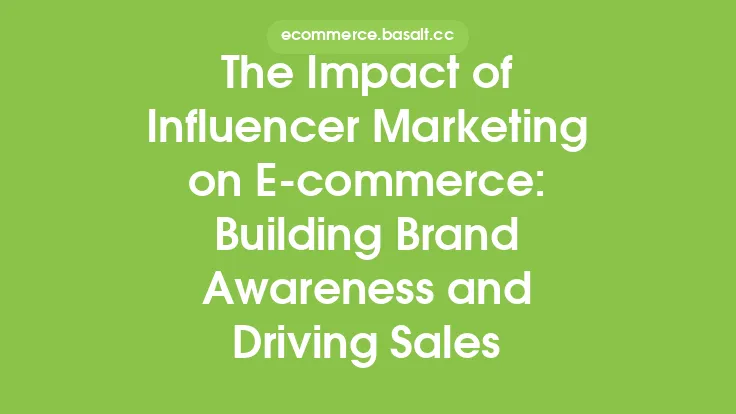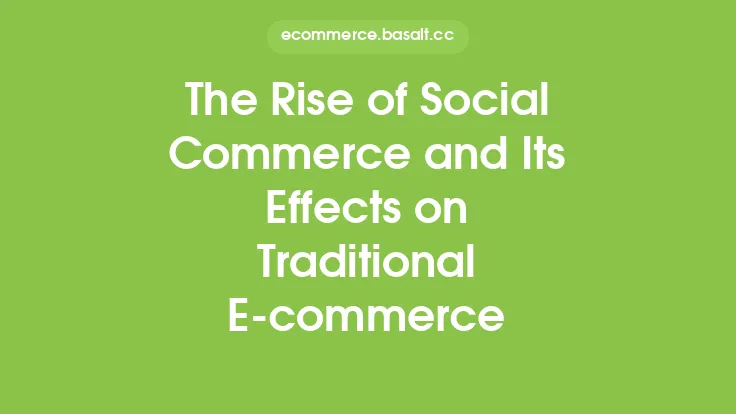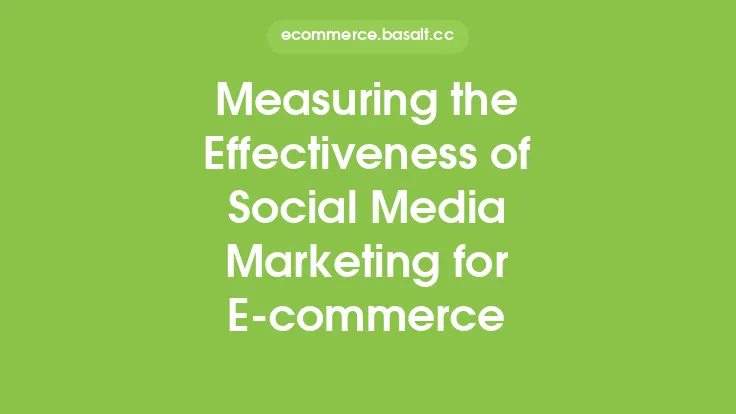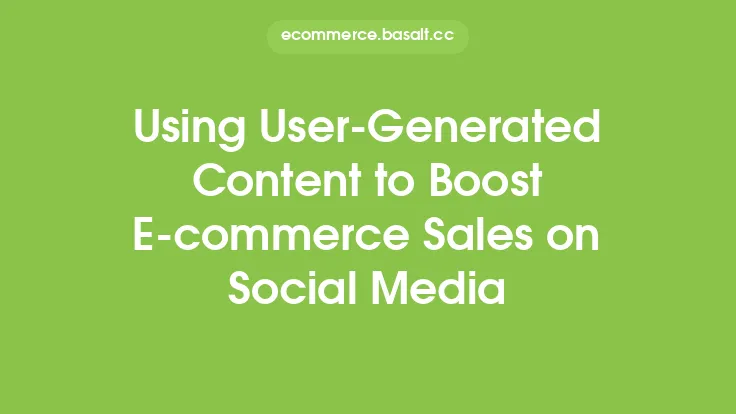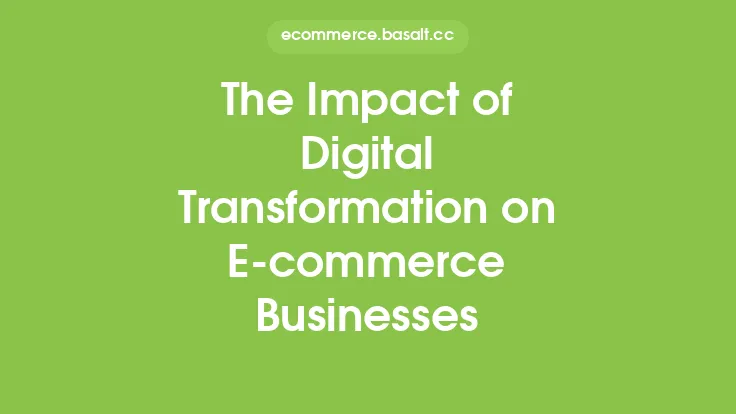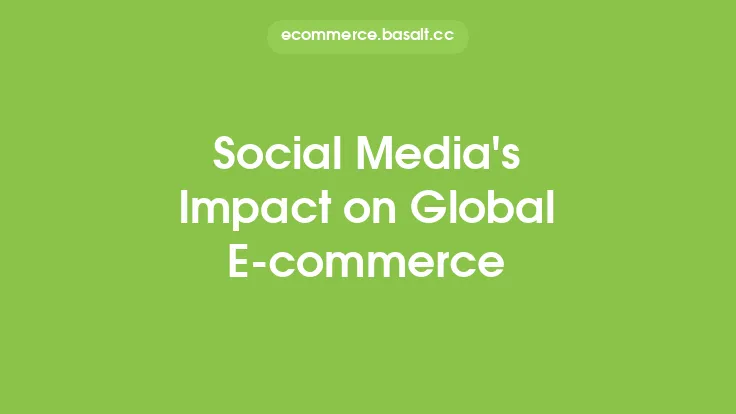The rise of social media has revolutionized the way businesses operate, and e-commerce is no exception. Social media platforms have become an essential channel for e-commerce companies to reach their target audience, drive sales, and increase revenue. In this article, we will explore the impact of social media on e-commerce sales and revenue, and discuss the various ways in which social media can be leveraged to boost online sales.
Understanding the Relationship Between Social Media and E-commerce
Social media and e-commerce are closely intertwined. Social media platforms provide e-commerce businesses with a vast audience, and the ability to target specific demographics and interests. By creating engaging content, running targeted ads, and leveraging influencer marketing, e-commerce companies can drive traffic to their websites, increase brand awareness, and ultimately drive sales. According to a study, 71% of online shoppers are more likely to recommend a product to friends and family if they have a positive experience on social media.
The Role of Social Media in Driving Website Traffic
Social media plays a significant role in driving website traffic, which is a critical factor in driving e-commerce sales. By creating engaging content, such as product demos, tutorials, and reviews, e-commerce companies can encourage social media users to visit their website. Additionally, social media ads, such as Facebook and Instagram ads, can be used to drive targeted traffic to e-commerce websites. According to a study, social media drives 26% of website traffic, making it a critical channel for e-commerce businesses.
The Impact of Social Media on Conversion Rates
Social media can also have a significant impact on conversion rates. By creating a seamless user experience, providing social proof, and offering incentives, such as discounts and promotions, e-commerce companies can increase the likelihood of social media users converting into customers. According to a study, social media users are 29% more likely to convert than non-social media users. Furthermore, social media can also be used to retarget users who have abandoned their shopping carts, increasing the chances of conversion.
The Role of Influencer Marketing in E-commerce Sales
Influencer marketing has become a critical component of e-commerce marketing strategies. By partnering with influencers who have a large following and are relevant to their target audience, e-commerce companies can increase brand awareness, drive website traffic, and ultimately drive sales. According to a study, 49% of consumers rely on influencer recommendations when making purchasing decisions. Additionally, influencer marketing can also be used to increase social proof, with 22% of consumers saying they are more likely to trust a product recommended by an influencer.
The Importance of Social Media Analytics in Measuring E-commerce Sales
Social media analytics play a critical role in measuring the effectiveness of social media marketing campaigns in driving e-commerce sales. By tracking metrics such as website traffic, conversion rates, and sales, e-commerce companies can gain insights into the performance of their social media campaigns and make data-driven decisions to optimize their marketing strategies. According to a study, 61% of marketers say that social media analytics are essential to their marketing strategy.
The Future of Social Media and E-commerce
The future of social media and e-commerce is exciting and rapidly evolving. With the rise of new social media platforms, such as TikTok and Snapchat, and the increasing use of artificial intelligence and machine learning, e-commerce companies will have new opportunities to reach their target audience and drive sales. Additionally, the increasing use of social commerce, which allows users to purchase products directly from social media platforms, will continue to blur the lines between social media and e-commerce.
Best Practices for Leveraging Social Media to Drive E-commerce Sales
To leverage social media to drive e-commerce sales, e-commerce companies should focus on creating engaging content, running targeted ads, and leveraging influencer marketing. Additionally, e-commerce companies should prioritize social media analytics, to gain insights into the performance of their social media campaigns and make data-driven decisions to optimize their marketing strategies. By following these best practices, e-commerce companies can increase brand awareness, drive website traffic, and ultimately drive sales.
Conclusion
In conclusion, social media has a significant impact on e-commerce sales and revenue. By understanding the relationship between social media and e-commerce, driving website traffic, increasing conversion rates, leveraging influencer marketing, and using social media analytics, e-commerce companies can increase brand awareness, drive sales, and ultimately drive revenue. As the social media landscape continues to evolve, e-commerce companies must stay ahead of the curve and adapt their marketing strategies to stay competitive. By doing so, e-commerce companies can unlock the full potential of social media and drive business growth.
